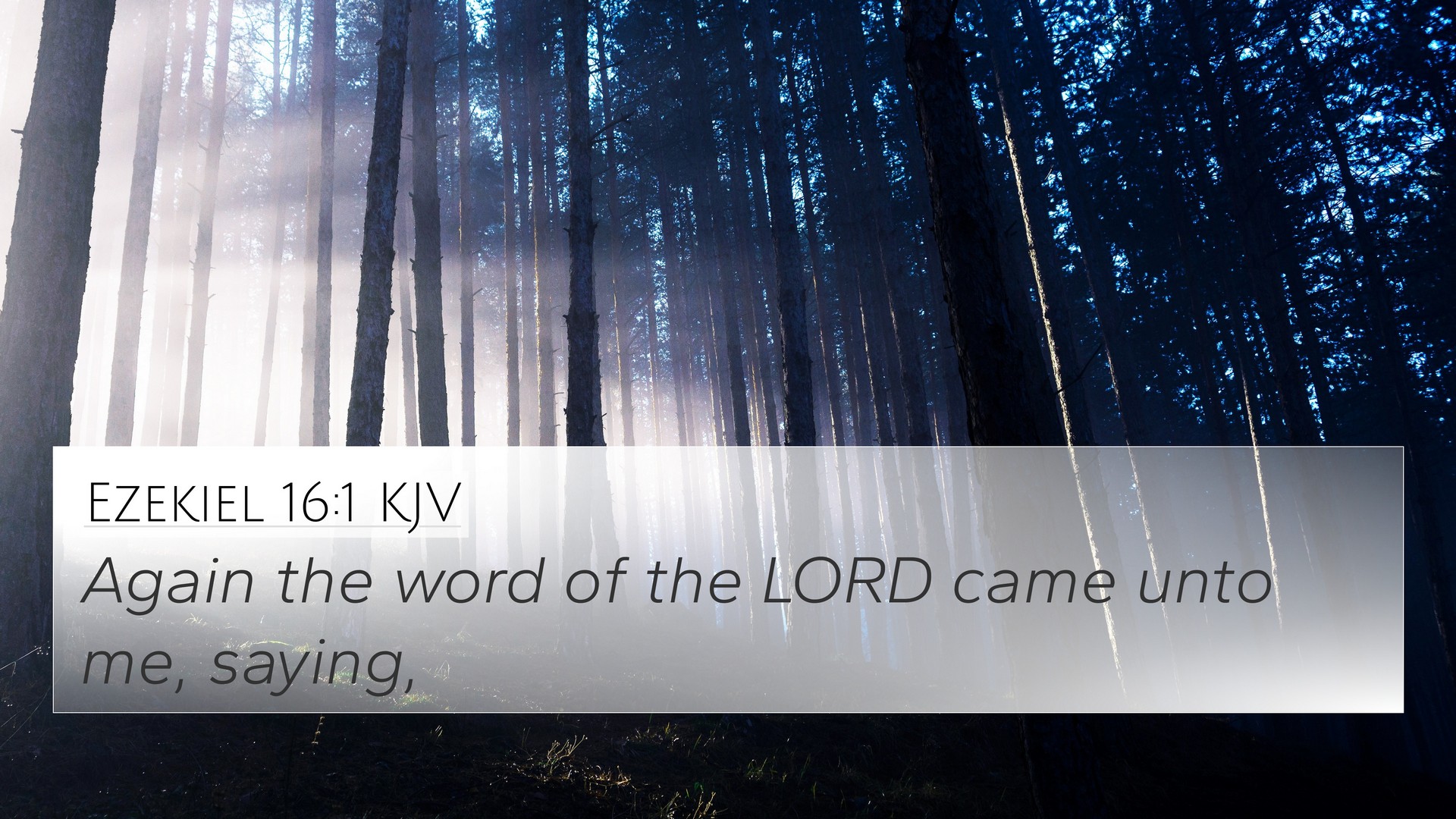Ezekiel 16:1 - Summary and Interpretation
Bible Verse: Ezekiel 16:1
"Again the word of the Lord came unto me, saying,"
Overview of Ezekiel 16:1
Ezekiel 16:1 serves as an introduction to one of the most poignant allegories in the book of Ezekiel. This verse signals the Lord's direct communication with the prophet Ezekiel, marking the beginning of a detailed metaphorical depiction of God's relationship with Israel. The verse emphasizes God's initiative in addressing His people and sets the stage for the subsequent verses that explore themes of unfaithfulness and redemption.
Commentary Insights
-
Matthew Henry's Insight:
Matthew Henry notes that this verse highlights God's sovereignty and His persistent outreach to His people, emphasizing His desire to communicate truth and guidance. The phrase "the word of the Lord" indicates the authority of divine revelation, showing that God takes the initiative to engage with His people, a theme crucial throughout the prophetic writings.
-
Albert Barnes' Insight:
Albert Barnes underscores the importance of God speaking to Ezekiel, which reflects God's continual concern for Israel. Barnes suggests that this divine communication indicates not only a call for attention but also serves as a pivotal moment for Israel to reflect on their own actions and the nature of their covenant relationship with God.
-
Adam Clarke's Insight:
Adam Clarke elaborates on the notion that God's words in this context are both a warning and an invitation. Clarke points out that the message is not merely for condemnation; it also serves to remind the people of their identity and the special relationship they hold with their Creator. This brings out the dual themes of judgement and mercy that often characterize Ezekiel's prophecies.
Thematic Connections and Cross-References
This verse can be connected to several themes and other scriptures within both the Old and New Testaments:
-
Jeremiah 3:11-14: Reflects God's call for Israel to return to Him, showcasing the theme of divine pursuit.
-
Isaiah 1:18: The Lord’s invitation to reasoning, highlighting His readiness to forgive and restore.
-
Hosea 2:14-15: Uses a similar metaphor of romance and betrayal to depict God's relationship with Israel.
-
Ephesians 2:1-10: Illustrates the New Testament understanding of grace and redemption, paralleling the themes present in Ezekiel.
-
Romans 2:4: Emphasizes God's kindness as a means to lead sinners to repentance, resonating with the message of hope in Ezekiel.
-
Hebrews 12:5-6: Discusses God's discipline as a sign of love, correlating with the corrective nature of Ezekiel's message.
-
Matthew 23:37: Jesus laments over Jerusalem, showcasing His longing for reconciliation akin to the themes found in Ezekiel.
-
Revelation 3:19: Reveals the ongoing call for repentance and the invitation toward relationship with God.
Understanding the Interpretative Themes
The verse is central to understanding how God communicates His will and the importance of receptiveness to that communication. The thematic implications include:
- Divine Invitation: God's desire for dialogue with His people presents a model for understanding prayer and revelation.
- Call to Repentance: The text serves as a precursor to the numerous calls for Israel to acknowledge their failures and turn back to God.
- Identity of God's People: The relationships depicted are crucial in understanding national and spiritual identity in the Biblical context.
- Mercy and Judgement: This duality is central to Ezekiel’s message, offering both a slight of condemnation and a hope for restoration.
Conclusion
The message of Ezekiel 16:1 is foundational for grasping the overarching narrative of God's covenant with Israel. It serves as a prelude to profound themes of judgment, mercy, and the need for repentance. The echoed insights from Matthew Henry, Albert Barnes, and Adam Clarke enrich our understanding and reveal the significant connections between this verse and greater Biblical themes. By exploring Bible verse cross-references and connections between Bible verses, we gain a more comprehensive view of God's heart and intentions, which resonate throughout the entirety of Scripture.


